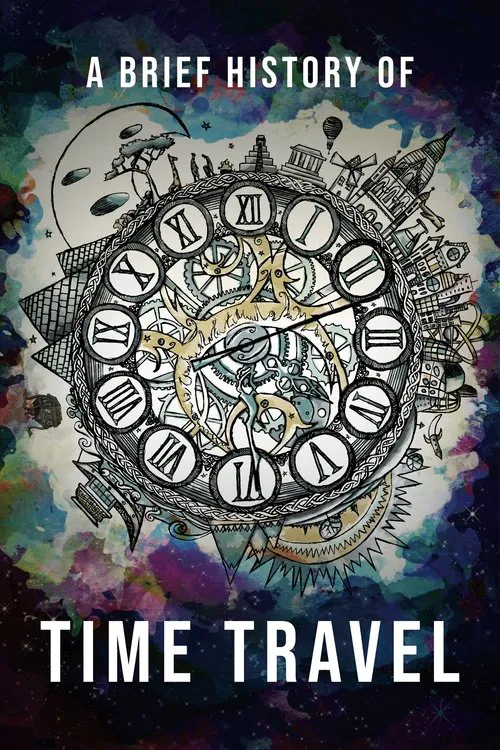A Brief History of Time Travel

Plot
A Brief History of Time Travel takes audiences on a captivating journey through the fascinating realm of time travel, a concept that has long captivated human imagination. Spanning centuries, the film delves into the origins of time travel, its evolution in science fiction, and the intriguing possibilities awaiting us in the future. The film begins with a sweeping narrative, tracing the roots of time travel back to ancient mythology and literature. From Homer's Iliad and Odyssey to H.G. Wells' The Time Machine, we see how time travel has been a recurring theme in human storytelling, influencing the way we think about the past, the present, and the future. As we journey through the ages, we find that time travel has not only been a staple of science fiction but also a driving force behind technological innovation and philosophical debate. As the 19th and 20th centuries unfold, we witness the rise of time travel in science fiction literature. Authors like Mark Twain, Jules Verne, and Isaac Asimov explore the concept in their works, pushing the boundaries of human understanding and imagination. The film showcases iconic examples from these authors, including Twain's A Connecticut Yankee in King Arthur's Court, where a time-traveling American finds himself in the midst of Camelot's grandeur. We also see Jules Verne's Around the Moon, where a journey to the moon becomes a transformative experience for its passengers. Asimov's The End of Eternity, meanwhile, offers a thought-provoking exploration of time travel as a tool for social commentary and moral introspection. One of the most significant influences on the time-travel genre is Albert Einstein's theory of relativity. Introduced to the world in the early 20th century, Einstein's groundbreaking work revealed the malleable nature of time and space. Time travel, once the province of fantasy, began to take on new meaning as the possibility of manipulating the fabric of spacetime became a reality. The film highlights the key figures involved in the development of modern physics, including physicist and mathematician Hermann Minkowski, who introduced the concept of spacetime in the 1900s. This pivotal insight paved the way for later explorations of time travel in films and literature. The 1960s and 1970s witnessed a cinematic explosion of time-travel films, with the release of classics including The Time Machine, The Time Travelers, and the iconic Back to the Future trilogy. This decade also saw the rise of time-travel adventure series, such as Doctor Who, with its ingenious use of the Daleks and other alien species to propel the concept of time travel. This film highlights the impact that such series have on popular culture, inspiring a new wave of fans who dream of traversing the boundaries of time and space. As the 80s and 90s arrived, time travel continued to capture the imagination of audiences worldwide. Movies like The Terminator and The Matrix used time travel as a central plot device to explore complex themes like free will and the human condition. The Matrix, in particular, showcased the potential of time travel as a metaphor for the struggle between individual freedom and oppressive regimes. These films demonstrate the adaptability and versatility of the time-travel concept, which allows for diverse interpretations and creative explorations across various mediums. The 21st century has seen an explosion of new time-travel narratives across various media. The film celebrates the resurgence of the time-travel genre in films like The Butterfly Effect and Looper. It also takes a deep dive into the world of video games, showcasing the innovative uses of time travel in titles like Portal and BioShock. Moreover, with the rise of indie cinema, filmmakers have created innovative and often disturbing explorations of time travel, such as Primer and Predestination. Throughout its compelling journey, A Brief History of Time Travel highlights the diverse array of creative thinkers who have pushed the boundaries of human understanding. From ancient mythologists to modern-day physicists, each figure has contributed to a greater understanding of time travel and its profound implications for human society. The film reveals how time travel continues to shape our understanding of the past, influence our views on free will, and inspire our imagination for the future. Ultimately, A Brief History of Time Travel serves as a reminder that time travel is not just a concept but a reflection of humanity's innate curiosity, creativity, and resilience. It is a testament to the power of human imagination, which has transformed a fantastical concept into a tangible, albeit still fictional, reality. As the film concludes, the possibilities of time travel await us, a boundless expanse of imaginative possibility that invites us to explore, to discover, and to push the frontiers of what it means to exist in time and space.
Reviews
Recommendations




